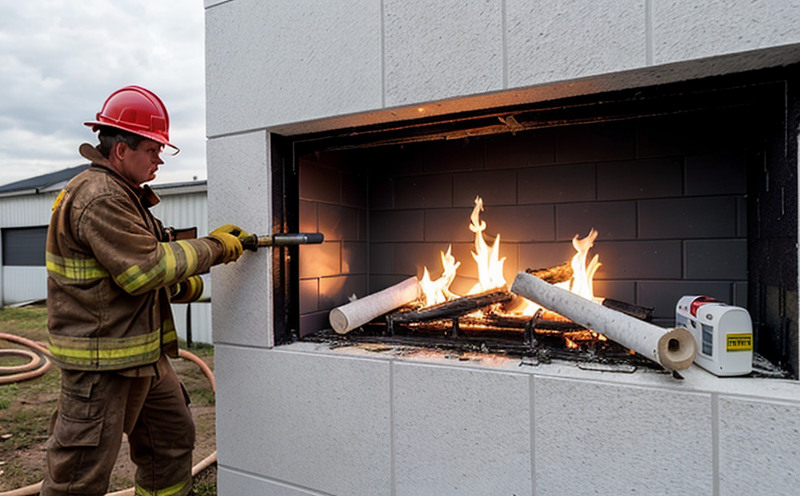Building Materials Fire Resistance Testing
The integrity of a building's fire resistance is paramount to ensuring both safety and compliance with international standards. Building materials play a critical role in determining the overall fire performance of a structure, which makes their fire resistance testing indispensable.
In accordance with ISO 834:2016, this testing evaluates how effectively various building materials can resist ignition and continue to provide structural integrity during a fire. The test simulates real-world conditions by subjecting specimens to controlled heat, flame, or both under strict protocols.
Fire resistance tests are essential for ensuring compliance with codes such as the Building Research Establishment's Eurocode 6 (BR E 6) and the American Society for Testing and Materials (ASTM E119). These standards provide detailed guidelines on specimen preparation, testing procedures, and acceptance criteria.
The outcomes of fire resistance tests are used to determine a material’s classification in terms of its ability to resist fire. Common classifications include:
- Class A: Significant contribution to the structural integrity during fire
- Class B: Moderate contribution to the structural integrity during fire
- Class C: Minimal contribution to the structural integrity during fire
The test results are critical for architects, engineers, and building owners in selecting materials that meet both legal requirements and performance expectations. Moreover, they can influence insurance rates, building permits, and even consumer confidence.
Testing is not just a regulatory requirement; it also serves as a crucial step in the development of new products or modifications to existing ones. By understanding how different materials perform under fire conditions, R&D engineers can innovate and improve upon current designs. This data is invaluable for procurement teams looking to source high-quality, fire-resistant building materials.
The process involves several key steps:
- Specimen Preparation: Materials are cut into standard sizes that closely represent actual construction elements such as walls or floors.
- Test Setup: Specimens are installed in a furnace where they undergo exposure to controlled heat and flame according to specified parameters.
- Data Collection: Throughout the test, critical data points like temperature rise, smoke production, and structural integrity are monitored using sophisticated instrumentation.
- Evaluation: Post-test analysis determines whether the material meets prescribed criteria for fire resistance.
The results of these tests can significantly impact a project's success. For instance, if materials do not meet required standards, it could lead to delays in construction and additional costs. Conversely, successful testing enhances brand reputation and ensures long-term safety.
Scope and Methodology
| Parameter | Description |
|---|---|
| Test Specimens | Standardized samples of the building material to be tested. |
| Temperature Control | The furnace is maintained at a specified temperature range for a defined duration. |
| Flame Exposure | Specimens are exposed to controlled flames for a predetermined time. |
| Data Monitoring | Continuous measurement of temperature, heat flux, and structural integrity during the test. |
Benefits
- Compliance with Legal Standards: Ensures that all materials comply with local and international fire safety regulations.
- Risk Mitigation: Reduces the risk of fires in buildings, enhancing overall safety.
- Enhanced Product Reputation: Increases market appeal by demonstrating a commitment to quality and safety standards.
- Cost Efficiency: Identifies potential issues early in the development stage, saving on costly redesigns or retests later.
Eurolab Advantages
Eurolab provides comprehensive and reliable fire resistance testing services tailored to meet the unique needs of our clients. Our state-of-the-art facilities are equipped with advanced instrumentation that ensures precise and repeatable test results.
- Expertise: A team of experienced professionals with deep knowledge in materials science and fire safety.
- Accreditation: Our laboratory is accredited by reputable bodies such as the UK Accreditation Service (UKAS) to ISO/IEC 17025 standards, ensuring high-quality testing.
- Global Reach: We offer services that are recognized internationally, making compliance easier for global projects.
Additionally, Eurolab’s comprehensive approach includes support throughout the entire process, from initial consultation to final reporting. Our goal is not only to meet but exceed expectations by providing accurate and actionable data.





